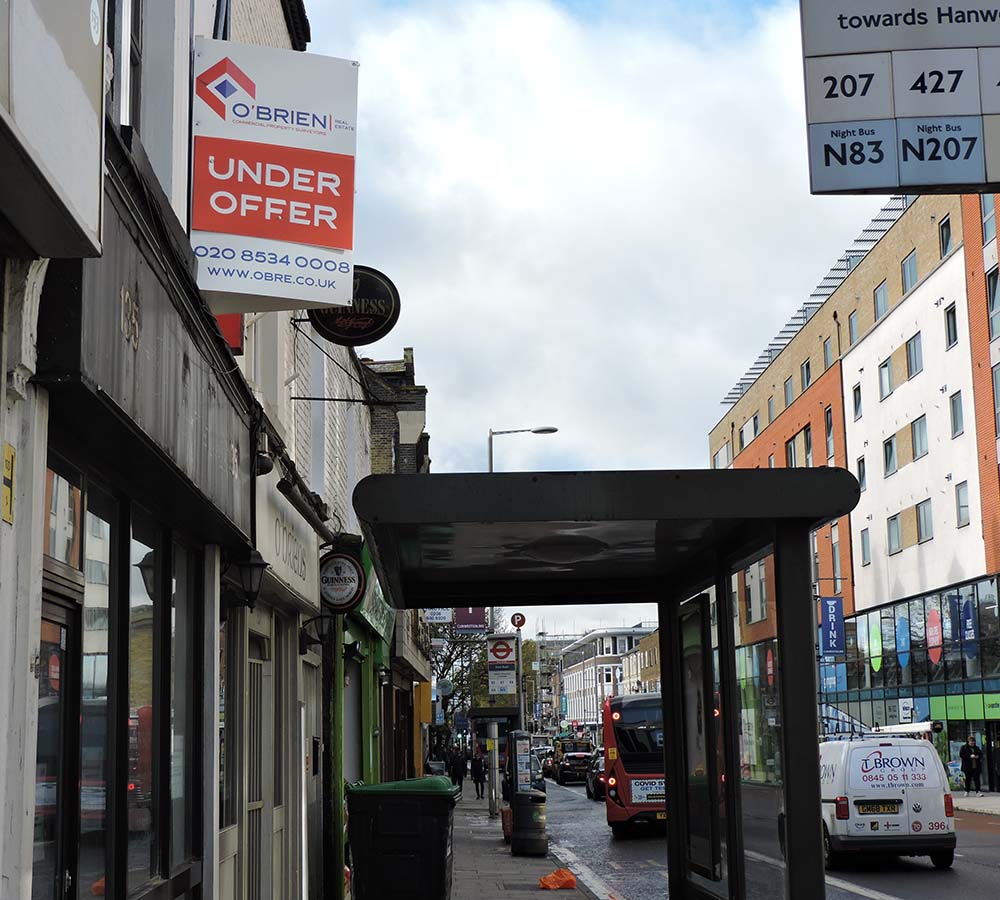Managing Director Simon O’Brien interviewed for Property Professional magazine in relation to Class E
A huge shake-up of planning rules in September 2020 revoked Parts A and D of the Schedule to the Use Classes Order 1987 and introduced a new use class for commercial property- Class E (commercial, business and service). In one fell swoop, the change cut through the inherent restrictions created by a multitude of town centre use classes, and lumped most of them together in one broad-based, flexible-use class.
Class E consolidates former use classes Al (shops), A2 (financial and professional) and A3 (restaurants and cafes), as well as part of Dl (non-residential institutions) and D2 (assembly and leisure). But almost four years since it was introduced, has it achieved its objectives?
Since Covid the high street has undergone a massive transformation. While landlords had been finding it increasingly difficult to fill significant volumes of empty retail units, demand for a new kind of high street, offering a much broader range of amenities, has emerged.
Class E allows for a mix of uses without the need for planning consent from the local authority. It also recognises that a building may be in several different uses concurrently or be used for different uses at different times of the day. There are a couple of exceptions - bookmakers, for example, need a change of use back to Class E. And although restaurants do fall under Class E use, planning consent will be needed for the occupiers to comply with extraction and ventilation matters. In addition, a specific consent is still required for a takeaway use as the local authority needs to control times of operation, noise, disturbance and rubbish risks to protect neighbouring residents.
"It was introduced because the Government, particularly with Covid, was aware that the massive dependency on retail use was a risk to the high street. Class E use was introduced to make the letting of shop units more versatile," explains Steve Lane, a partner at Robinsons. "If a shop becomes empty it means that there is wider scope and more people able to take occupation than in the past."
Simon O'Brien, Managing Director of commercial property surveyors O'Brien Real Estate, says the introduction of Class E planning is the biggest positive change to commercial property since he started trading in 1996, and the flexibility offered by Class E use has been a game changer in the rejuvenation of the high street.
"We're amazed by the good covenants that are interested in units that they previously wouldn't have bothered going after. There's been a tremendous benefit to high streets across the country because it's opened up the types of occupier and users that can go in," Simon adds.
INCREASED FLEXIBILITY
The previous system wasn't complicated, but for landlords looking to let an empty unit, the prospect of applying for change of use was a source of uncertainty, Simon explains. "Commercial landlords wouldn't necessarily pick the best tenant, to avoid void periods."
Steve cites the example of a corner unit previously occupied by a large estate agent chain, paying around £35,000/£40,000 a year in rent. "A private dentist viewed the unit- it was perfect for them - a bold corner plot, close to parking, and they took it straight away. In the old days, a planning application would have taken weeks!"
One potential downside to the increased flexibility offered by Class E is that local authorities have potentially less control of the mix of uses on the high street. Steve speculates that more stringent controls might be considered down the line as the economy improves. "But I think that's a long way off," he says. "As far as clients are concerned it's been very well received. It was the right thing to do."
For commercial landlords or agents controlling a whole parade, any concerns about a concentration of certain types of business can be addressed using a restrictive user clause. "It means we won't allow conflicting users within the same parade, but that only works where you've got control of the whole parade."
REJUVENATION PROCESS
One potential issue on Simon's radar is rent reviews on commercial units. The flexibility of use offered by Class E makes it more difficult to value rents, as different kinds of businesses might be used to paying different rates.
"For example, dentists might be used to paying slightly higher rent than they would if it was a retailer. If a shop next door comes up to a rent review, and it now has the same use class as the dentist, how do you compare the rents? I think that's something that's going to come out in the wash over the next three or four years," Simon says. In the meantime, the rules have helped ailing high streets against a backdrop of changing shopping habits and retail trends, according to Steve. "If it weren't for the introduction of Class E, things would have been really tough on the high street. The multiples aren't generally opening new shops, so Class E enables entrepreneurs to take on units and fulfil their dreams while at the same time giving neighbouring shops some footfall."
The simplification offered by Class E may not have alleviated pressure on overstretched planning departments to streamline change of use requests that continue to land on their desks. However, the consensus among commercial property experts is that the changes implemented four years ago have played an essential role in rejuvenating the high street. As Simon explains: "It's a win for landlords, a win for tenants and a win for local residents."












